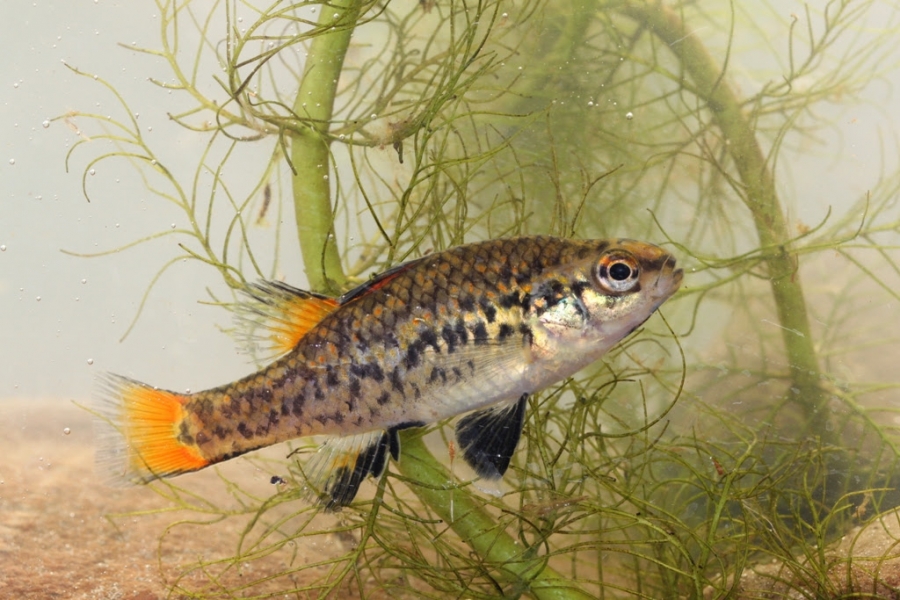With increased sedimentation, vegetation clearing and exotic fish populating our waterways – it’s a wonder we have any native fish left. But we do! Here - in the paradise of Gunning District – we have a population of Southern Pygmy Perch. This population is one of only 3 known remaining populations in NSW.
Southern Pygmy Perch once inhabited waterways far and wide throughout NSW, including the Lachlan, Murrumbidgee and Murray river systems. They were once so plentiful people would catch them in large numbers and use them as bait fish. Now they are listed as an endangered species.
It is a classic tale of big fish eating medium fish, and then medium fish eating small fish, small fish eating tiny fish and so on. Southern Pygmy Perch may be small but their ongoing survival is important for the survival of many other fish species. Not to mention any loss in biodiversity across our landscape leaves us all the poorer.
Southern Pygmy Perch live amongst the aquatic vegetation growing in creeks, dams, billabongs and wetlands. They are carnivorous, eating a range of aquatic crustaceans and insects. They grow to between about 6 to 8cm long.
The main threats to Southern Pygmy Perch survival is loss of habitat. Seen as loss of riparian and aquatic vegetation, as well as wetland drainage and regulation. Predation is also a major threat and the main culprit in the Gunning area is the introduced red fin. These aggressive fish compete with Southern Pygmy Perch for habitat but are also known to eat Southern Pygmy Perch.
The long, scruffy grass growing along your creeks and around the edges of your dam may look far from manicured, but to Southern Pygmy Perch this is home sweet home! They need vegetation to shelter in, hunt, regulate water temperature and breed. Gunning district is so fortunate to still have a Southern Pygmy Perch population. However, if we don’t turn around the habitat loss, it may not be for long. Wouldn’t it be great if rather than holding on to our small population, it could grow!
